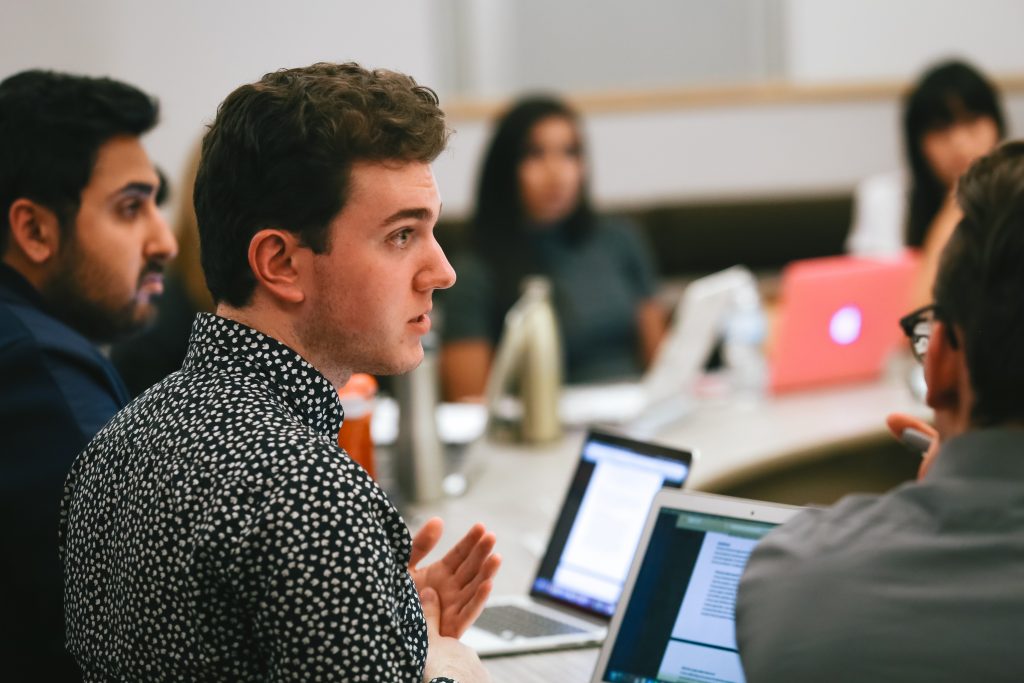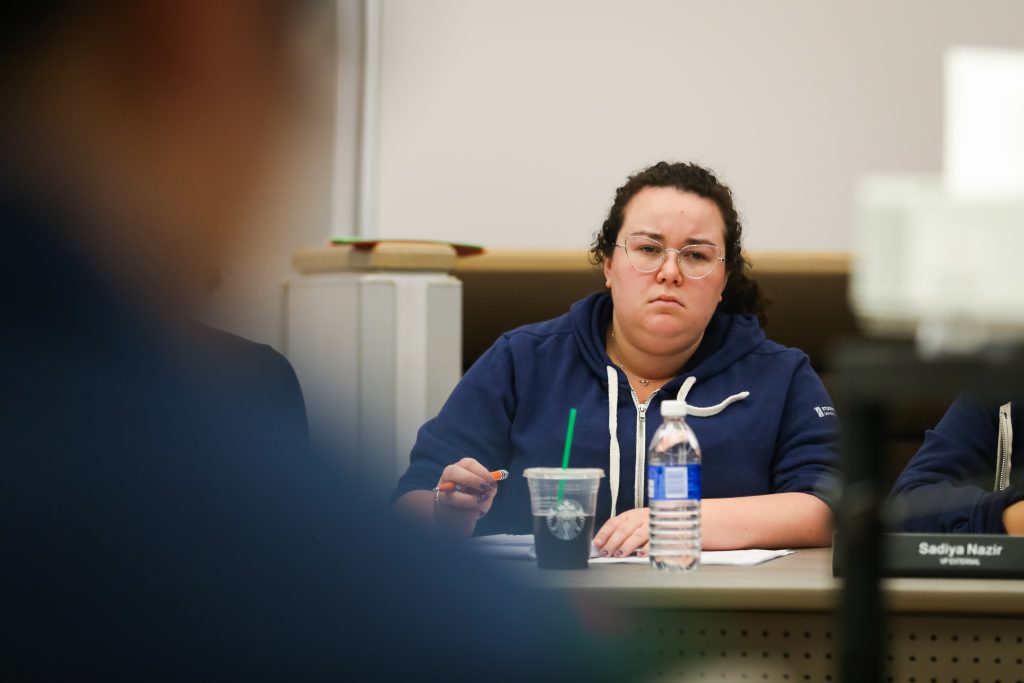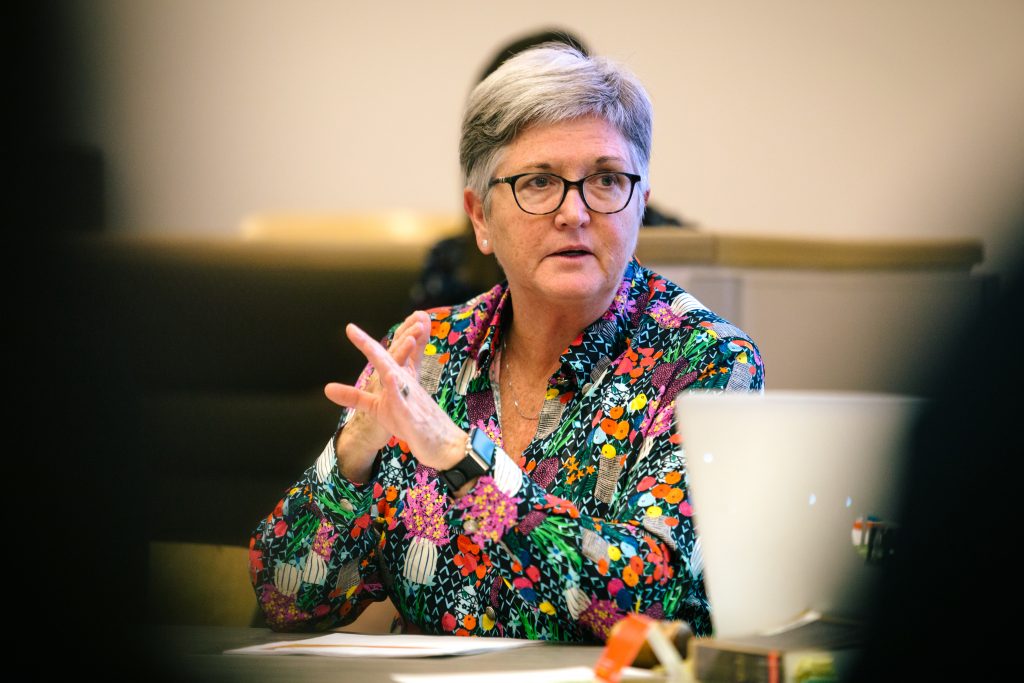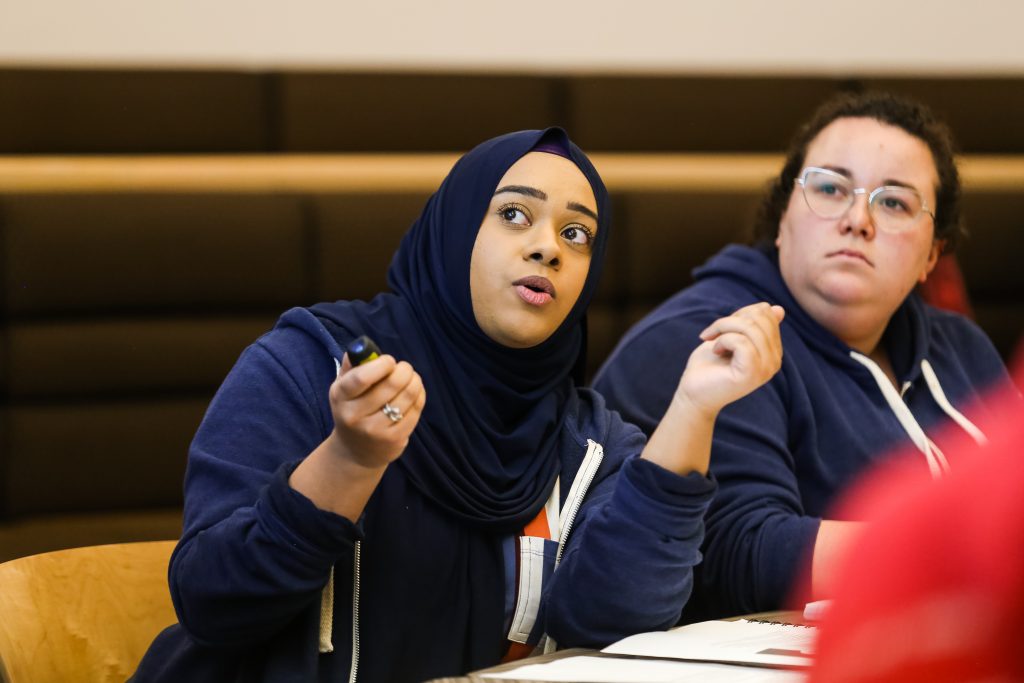
Board of Governors votes to approve new Sexual Violence Policy amidst concerns from students
By Kristy Koehler, July 28 2020—
On June 19, the University of Calgary Board of Governers voted to approve a new Sexual Violence Policy. It was not a unanimous vote.
Students’ Union president Frank Finley motioned for a delay of implementation of the policy until September’s board meeting, but his motion was defeated.
“We’re never going to get a policy perfectly right but are there things we can include to be at a baseline with other institutions,” he said. “Unfortunately, I am not confident the processes were followed in a way that I think meets meaningful consultation.”
In writing the updated policy, U of C asked students to participate in a consultation process through an online survey that was open from March 2 to April 1. Finley thanked the university for implementing the online form that allowed students to make comments anonymously on the policy. He indicated that the revisions made were largely positive and left the policy in a better place. Still, he thought it left much to be desired.
Finley’s motion to delay was based on several concerns that he and student-at-large Alisha Gordon brought up to the Board of Governors — notably, a lack of focus on consultation with student groups, intersectionality and lack of attention to issues previously raised at a March meeting of the Students’ Legislative Council.

On March 10, the Students’ Legislative Council heard the proposal for a new Sexual Violence Policy and had consultations with vice-provost student experience Susan Barker, legal counsel Deborah Book and sexual violence support advocate Carla Bertsch. A lengthy discussion was had about the failings of the policy as it was presented.
At the meeting, Gordon, the SU’s vice-president student life at the time, criticized the policy’s lack of inclusion about domestic violence or stalking, noting that both issues affect undergraduate students. Barker responded that the Harassment Policy, Sexual Violence Policy and Student Non-Academic Misconduct Policy address those behaviours. Gordon reiterated that she would like to see domestic violence specifically incorporated, and that “it is a form of gender-based violence and needs to be covered in the policy.”
About 15 minutes into the SLC meeting, then-president Jessica Revington expressed her concern that, owing to how traumatic and triggering discussions about sexual violence and assault could be, she was disappointed that she needed to address SLC to let them know they should feel comfortable to leave the meeting if they needed to do so. According to meeting minutes, “Revington added that the fact that this must come 15 minutes into the discussion is very telling of the campus culture.”
Former Faculty of Arts representative Rayane Issa questioned whether any of the amendments were based on the Council of Alberta University Students’ Sexual Violence White Paper. The document, released on January 27, 2020, provides a series of recommendations in 60-plus pages, tailored towards the Government of Alberta, pertaining to how sexual violence should be tackled at post-secondary institutions.
Book responded that they would “look into the White Paper.”
The White Paper notes that fear of being blamed for the incident, especially in the event of alcohol consumption at the time of the incident, is a barrier to survivors coming forward. The concerns brought forward at SLC echoed the White Paper.

Revington noted that sexual violence can occur with individuals under the influence of alcohol or drugs and questioned whether or not students would feel comfortable to come forward if they were in fear of the potential consequences for violating the Alcohol and Cannabis policy. According to the meeting minutes, “Book answered that they cannot ignore violations of the Alcohol and Cannabis policy.”
Gordon and Issa both reiterated the importance of consultation with university clubs such as the Consent Awareness and Sexual Education Club (CASE) who take disclosures from students and have a breadth of knowledge in this area. According to meeting minutes, “Book responded that a consultation of the SU and any other groups incorporates voices such as CASE and student organizations.” Gordon noted this was not enough and that club consultation was valuable and necessary. Book noted the value of student voices but “had concerns that they might not be welcome and be criticized for choosing to consult one group over the other.”
Despite recommendations from multiple SLC members, CASE was never consulted. CASE president Carly Jahelka expressed her disappointment in an interview with the Gauntlet. She said specific faculties reach out to the club all the time for training and information, so why the university administration didn’t bother to do so is both disappointing and concerning.
“I get that we are just a student club, but at the same time, we are a student club that’s doing this work and we’ll know more about sexual violence on campus than other people writing about a policy,” she said. “There would have been a lot of benefit in having one or two CASE members sitting with them and discussing this. It’s sad that CASE wasn’t consulted because student voices are important and from what I understood that’s something that was promised — to include more student voices. It doesn’t sit right.”
While a range of issues and concerns was brought up at the March SLC meeting, it was the lack of consultation with student groups, lack of intersectional considerations and failure to include some of the more glaring issues that students raised which ultimately saw Gordon and Finley refuse to lend support to the revised policy at the Board of Governors meeting.

At the Board of Governors meeting, Gordon put some of the same questions heard at SLC forward again, specifically citing the need for an immunity clause in the new policy.
The reason there is not a specific immunity clause, said Book in response, is that all university community members are covered by the Sexual Violence Policy, and it would be unfair to say that repercussions would never happen. She cited the example of an employee driving a vehicle for their work while impaired. If they experienced sexual violence, obviously the first priority would be to help them heal from the incident, but as an employer, the university would have to make responsible decisions and not simply ignore the person being intoxicated at work while operating a motor vehicle.
Gordon used her platform at the Board of Governors (BOG) meeting to speak to the way in which COVID-19 has increasingly brought domestic violence issues to light. She said it was a mistake to not include specific references to domestic and interpersonal violence in the final policy.
Finley wondered whether Malinda Smith, newly-appointed provost of Equity, Diversity and Inclusion (EDI), had been consulted and noted that, at a previous General Faculties Council meeting, he seemed to remember getting affirmation from Dru Marshall, provost and vice-president academic, that Smith had indeed been included. Finley pressed as to whether or not Smith had seen the revised policy, to which Marshall said she likely had not but that consultation with her when she arrived on campus would certainly be a priority.
Finley also noted that in reviewing the Sexual Violence Policies of other institutions, that some specifically make mention of stalking and stealthing, items that were omitted from U of C’s policy.
Book noted that specificity raised interesting questions and that, while there are probably a whole host of definitions which could be included, a more broad-spectrum approach was preferable and that, if specific items come up, they can be captured under the definitions of harassment and sexual violence as they are currently laid out.
Board Chair Geeta Sankappanavar noted her appreciation of the comments but reminded the board of their responsibility as governors — to ensure the proper processes had been followed with regard to creating and debating the policy, rather than discussing the wording and specifics of the policy. She noted that the debates surrounding specifics were supposed to happen through multiple other processes. She agreed to continue the discussion, citing it as “incredibly valuable” but wanted people to “understand our framing of it.”
Gordon responded by letting the board know that they were bringing up specifics because when students were consulted through other methods, their concerns were not in fact reflected in the final document.
“We still have those concerns to address,” said Gordon, noting that the students she had consulted with would, in her opinion, not be comfortable with approval of the policy in its current iteration.
“It really concerns me that there are so many things missing,” said Gordon, adding that she felt consultation was lacking, her voice wasn’t heard and that no student groups were consulted beyond SLC.

Gordon specifically mentioned Indigenous students, again referencing the intersectional lens that she believed to be missing. CAUS’s White Paper confirms Gordon’s insistence that intersectionality is paramount to alleviating sexual violence on campus, stating that “broader systemic issues such as racism, sexism, and homophobia all play a role in enabling perpetrators, upholding rape culture, and marginalizing and silencing survivors.”
Gordon also questioned whether or not there were appropriate resources on campus, either in Writing Symbols Lodge or through the office of the Sexual Violence Support Advocate, to fulfill the policy’s mandate of wide-spectrum awareness of its contents.
Marshall noted that a “deep dive” was being taken to ensure resources are in the right place.
While the policy notes that it will be revisited every three years, Sankappanavar noted that it was an “evergreen policy that would be revisited constantly” and Marshall reiterated that three years would not have to pass before more revisions were to take place. Marshall noted that it was important to have an updated policy in place as quickly as possible, but it certainly did not mean the policy was set in stone and could not be added to if glaring issues were discovered.
When the discussions wound down, Finley attempted to exercise his right to motion for a delay of the policy’s implementation until the September board meeting. Sankappanavar noted that, in her view, given the discussion, the revised policy was better than what was in place and she would ask instead, to go ahead and move to a motion to adopt the document.
“I do believe it is my right as a board member to make a motion to table it,” pressed Finley, adding that he wasn’t doing motioning for the delay “with any joy.”
Sankappanavar noted that it was indeed his right, but stated: “I will also be asking for tabling of the motion for approval afterwards, but let’s first see how this goes.”
Graduate Students’ Association president Tanille Shandro, Gordon, and professor in the Department of Psychology Tavis Campbell voted to delay implementation of the policy, but postponement would have required a two-thirds approval, which Finley’s motion did not receive.

Finley and Gordon spoke to the Gauntlet after the Board meeting.
“I’m disappointed that more hasn’t been done to ensure our policy is aspirational and up to the standards of what other universities in Canada have in their policies,” said Finley. “With that said, it’s still good that we have this policy. The revisions that were made for clarity and grammatical errors were otherwise good revisions in and of themselves. This policy is better than it was before, but it could be so much better than it is right now.”
“I want to echo Frank’s comment,” said Gordon. “Positive changes were made and that was really important and great to see. We just hope the university commits to more revisions and more consultations in the near future and before the three-year official date of renewal.”
The policy vote fell shortly after Sexual Violence Awareness Month. On May 14, Minister of Advanced Education Demetrios Nicolaides offered a statement to recognize the month:
“One in five women attending university or college will experience sexual violence. Most often, it’s by someone she knows – and also most often, she does not report what happened. Many survivors are left feeling isolated, ashamed or that they are to blame. Although it happens less often, men, too, are victims of these crimes. Campus sexual violence is not only physically and emotionally scarring, it steals from students. It robs them of safe places to learn, and it deprives them of the confidence they need to further their academic career.”
In a previous interview with the Gauntlet, Sadiya Nazir, former chair of CAUS and past vice-president external of the SU when the White Paper was released, noted that Alberta was one of the few provinces in Canada that does not have specific legislation in place specific to campus sexual violence. One of the reasons for this, she suggested, was the lack of campus data needed to inform the policy work.
U of C’s current Sexual Violence Policy came into effect June 1, 2017, after two years of drafts, revisions and consultations. The previous policy had not been updated since 1990.
The new policy should be available online in the coming weeks.
